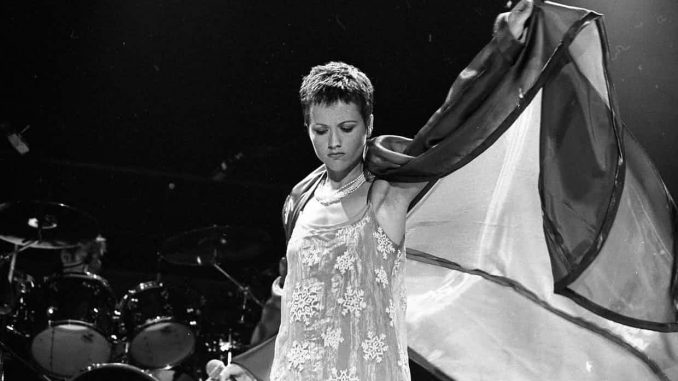
I have a lot of secrets about my childhood [but they] are just for me,” Dolores O’Riordan told the Guardian in 1995. She and her Limerick rock quartet, the Cranberries, were then at the peak of their success, well on the way to selling 40m albums, and O’Riordan was one of the highest profile female singers in the English-speaking world. It was nearly 20 years later that she revealed that she had been abused for four years from the age of eight by someone close to her family. By her own account, O’Riordan, who has died aged 46 of a cause as yet unknown, spent most of her adult life seeking a balance between depression and anorexia, and the rewards of great professional success.
https://youtu.be/R4aw-fB8GT0?t=3
The Cranberries’ rapid ascent exacerbated O’Riordan’s “terrible self-loathing”, generating anorexia and an eventual breakdown. A suicide attempt in 2013 was followed by a diagnosis of bipolar disorder. Last year, she spoke vividly of being “at the hypomanic side of the spectrum on and off for a long period”, and a hypomanic episode was cited when she was arrested for erratic behaviour on a transatlantic flight in 2014. She told the police: “I am an icon. I am the Queen of Limerick.” There were also physical problems: a Cranberries reunion tour scheduled for 2017 in support of their first album in five years was cancelled due to O’Riordan’s back pain.
Born in Ballybricken, Co Limerick, O’Riordan was the youngest of nine children (two of whom died in infancy) of Terence O’Riordan, a former farm labourer who was left unable to work after an accident, and his wife, Eileen, a school caterer, and went to Laurel Hill, a Roman Catholic school in Limerick. She was a tomboy, burying her dolls in the garden and spending most of her time with her heavy-metal-loving brothers. Yet she also played the organ in church and, well into her teens, wore flowery dresses bought for her by her mother. The influence of her church music and the heavy rock she heard at home instilled a desire to join a band – specifically, “a band with no barriers, where I could write my own songs”. That’s what she got.
At 18 she landed a job with a Limerick group called the Cranberry Saw Us by playing an early version of a song she had written, Linger (it was inspired by her first kiss, aged 17: “I’d always thought that putting tongues in mouths was disgusting, but when he gave me my first proper kiss, I did indeed ‘have to let it linger’,” she said last year).
Equally in thrall to rock and Gaelic folk music, her voice was startling and steely, and gelled uncommonly well with the band’s melodicism. Her Doc Martens-shod, spiky-haired look provided a visual anchor, overshadowing the rest of the group entirely. Despite being out of step with the prevailing Britpop and grunge scenes, they were taken on by the Smiths’ former manager, Geoff Travis, and courted by 32 record companies. The pivotal moment came when the successful label Island booked them as the support act on the fast-rising band Suede’s 1993 American tour.
Suede’s seedy ambiguity cut no ice in the US, but the Cranberries returned home as stars. Their debut album, Everybody Else Is Doing It, So Why Can’t We?, and 17m-selling 1994 follow-up, No Need to Argue, made O’Riordan so famous that, to her distress, she could not leave her hotel room. Linger and the next single, Zombie – written in response to the 1993 IRA bombing in Warrington – were ubiquitous on MTV, increasing her sense of isolation.
Despite having a metal rod put into her leg following a 1994 skiing accident, she was contractually compelled to tour throughout that year, and played some of the shows in a wheelchair. That was also the year she married Don Burton, then Duran Duran’s tour manager. Most of her happiness seems to have stemmed from their three children; when her attempt to take her life in 2013 failed, she saw it as a sign that she was meant to stay with them.
After the Cranberries split in 2003, O’Riordan launched a fitful solo career that yielded two albums, Are You Listening? (2007) and No Baggage (2009). She worked with the Smiths bassist Andy Rourke on a project called DARK, and was a judge on one season of the Irish version of the TV show The Voice. Still esteemed by other musicians, she appeared on records by Zucchero and Jam & Spoon, and at the time of her death had come to London to re-record Zombie with a rock band, Bad Wolves.
Her goal, she said in 2017, was to make at least one more album and go on tour again: “I haven’t been doing too much over the last five years. Sometimes you go through periods where you’re not writing music, you’re just dealing with your personal life.”
She and Burton divorced in 2014. Her children, Taylor, Molly and Dakota, survive her.
• Dolores Mary Eileen O’Riordan, singer, born 6 September 1971; died 15 January 2018
From The Guardian, Caroline Sullivan
eil.com – the world’s best online store for rare, collectable and out of print Vinyl Records, CDs & Music memorabilia since 1987




Be the first to comment